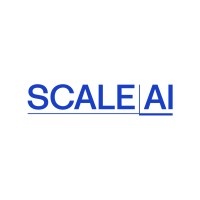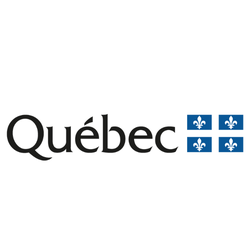
Écoemballage+ Stream 2 : Support for collective innovation
At a glance
- Maximum amount : 300,000 $
- Up to 75% of project cost
- Closing date : May 31, 2025
- Agriculture, forestry, fishing and hunting
- Manufacturing
- Accommodation and food services
- Quebec
- For-profit business
- Social economy enterprise
- Non-financial cooperative
- All revenue ranges
- All organization sizes
- Startups
Overview
The Ecoembalage+ program, specifically Volet 2, aims to financially support structuring projects for the eco-design of packaging, food containers, and recyclable beverage containers. The program targets projects addressing common issues and challenges across multiple organizations. Eligible activities include conducting diagnostics, studies, or analyses, receiving concrete recommendations from external consultants, implementing action plans for eco-design solutions, and disseminating project results for the community's benefit.
Activities funded
- Diagnostic, study, or analysis of recyclable packaging, containers, or consumables.
- Formulation of concrete recommendations for eco-design decision-making.
- Development of action plans or implementation plans for eco-design recommendations.
- Communication activities for disseminating project results to the community or interest groups.
Eligibility
- The applicant must be an enterprise to be operated for profit or a social economy enterprise.
- Eligible applicants include companies in the beverage industry and those involved in food processing activities, including preparation, packaging, and preservation of food products.
- Applicants can also include companies using contract manufacturers or outsourcing food processing, including private label holders.
- Food service companies offering takeout meals or those with central kitchens are eligible.
- The applicant must apply jointly within a group (cohort) of at least three (3) enterprises.
- New enterprises are eligible, provided they do not exceed 40% of the cohort's total participants.
- The applicant and participants must demonstrate willingness to participate through letters of participation.
- All participating companies must be legally constituted and registered in Quebec or Canada and primarily market their products in Quebec.
Who is eligible?
- Beverage companies
- Companies engaged in food processing activities
- Agricultural businesses involved in packaging or preservation activities
- Restaurants offering take-out meals
- Companies using contractors or outsourcing food processing, including private label brand holders
- Enterprises with a central kitchen
Who is not eligible
- Sole proprietorship, i.e., businesses operated by a single individual who is often referred to as a self-employed or independent worker
- Professional associations
- Labour organizations
- Public and private foundations within the meaning of the Income Tax Act (Canada)
- Trusts
- Private primary, secondary and post-secondary educational institutions
- Any company majority-owned by a municipal entity or Crown corporation (majority shareholder)
- Any company under the protection of the Companies' Creditors Arrangement Act or the Bankruptcy and Insolvency Act
- Any company listed in the Register of companies ineligible for public contracts at the following link: https://amp.quebec/rena/
- Any company that, during the two years preceding the application for financial assistance, failed to meet its obligations after having been duly served with a formal notice by the Minister in connection with the granting of previous financial assistance.
- Any company processing the following products: animal feed, nutraceutical, natural health products as defined in the Natural Health Products Regulation (SOR/2003-196). Products designated by a Drug Identification Number (DIN) are not considered, nor are cannabis-containing products and energy drinks.
Eligible expenses
- Professional fees for external experts, including specialized services, diagnostics, ecodesign, documentation, audits, life cycle analysis, technical studies, and report preparation.
- Travel and accommodation expenses related to project execution, considering economies of scale and adhering to government reimbursement guidelines.
- Training and knowledge transfer expenses, provided they are reasonable and project-related.
- Material acquisition costs, provided they are reasonable and project-related.
- Communication expenses for project result dissemination among stakeholders and interested parties, including the portion of an expert's salary for communication activities.
- Project coordination expenses, up to 20% of the total project cost, with a maximum of $30,000 per cohort, including a portion of the salary for the staff member dedicated to project implementation and administrative expenses.
Eligible geographic areas
This grant is specifically targeted towards companies located in Quebec, as it is funded by the Ministry of Agriculture, Fisheries and Food of Quebec (MAPAQ).
- Quebec, Canada
Selection criteria
Evaluation and selection criteria for this grant are as follows:
- Relevance of the project to the goals of supporting eco-design of food packaging and recyclable beverage containers.
- Demonstration of common or cross-cutting issues and challenges among participating organizations.
- Evidence of intention to integrate the project by participating members.
- The collective efficiency in terms of cost, including economies of scale related to common measures.
- Minimum of three companies required for a cohort project.
How to apply
Consultation of the guide
Contact an expert
- Contact an external expert from the ecodesign expert directory.
- Request a quote from the expert to include it in the financial aid application.
Preparation of the application form
- Fill out the financial aid application form and the attached documents.
- Gather all the required documents, such as letters of commitment or participation from cohort members.
Submission of the form
- Save the form and complete it later if necessary.
- Send the form to the FAQDD once completed.
Inclusion of complementary financing confirmations
Final transmission of additional documents
- For new businesses, provide a business plan and the required financial statements.
- For social economy businesses, complete the self-declaration document.
Additional information
- Projects must involve a minimum of three participating companies.
- Eligible cohorts include associative cohorts, sector-type cohorts and business clusters.
- Projects must include a diagnosis, concrete recommendations by external consultants, an action plan, and details of how the results will be disseminated.
- Applications are analyzed in three stages: eligibility analysis, relevance analysis and selection committee evaluation (detailed evaluation).
Payment
- The first payment is made no later than 30 days after signature of the agreement, and represents 50% of the amount of the grant awarded.
- The second payment of 50% is made no later than 60 days after acceptance of the final report submitted by the applicant.
Contacts
Frequently Asked Questions about the Écoemballage+ Stream 2 : Support for collective innovation Program
What is the Écoemballage+ Stream 2 : Support for collective innovation?
How much funding can be received?
Who is eligible for the Écoemballage+ Stream 2 : Support for collective innovation program?
What expenses are eligible under Écoemballage+ Stream 2 : Support for collective innovation?
Who can I contact for more information about the Écoemballage+ Stream 2 : Support for collective innovation?
Where is the Écoemballage+ Stream 2 : Support for collective innovation available?
Is the Écoemballage+ Stream 2 : Support for collective innovation a grant, loan, or tax credit?
More programs like this

PSCE – Component 2
Investissement Québec (IQ)
MAPAQ — Food Processing Program — Component 2
Ministry of Agriculture, Fisheries and Food (MAPAQ)
SCALE AI — Acceleration
Scale AI Cluster
Research, Innovation and Commercialization Tax Credit (CRIC)
Gouvernement du Québec
Support for biofood exports - individual projects
Ministry of Agriculture, Fisheries and Food (MAPAQ)
ÉcoPerformance — Recommissioning of building mechanical systems
Gouvernement du Québec
Individual Market Access Support (SIAM)
Aliments du Québec
Panorama Program
Investissement Québec (IQ)
Financing to respond to the offensive of new tariffs and for initiatives for resilient and exporting companies (FRONTIERE)
Investissement Québec (IQ)